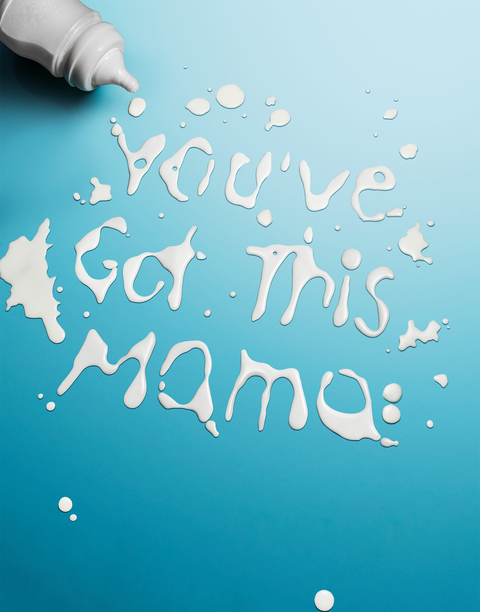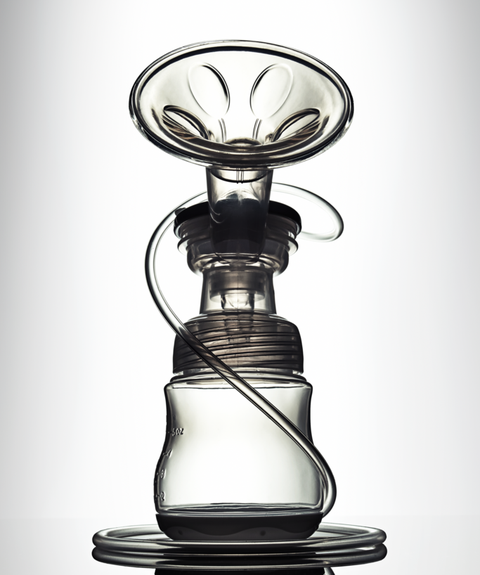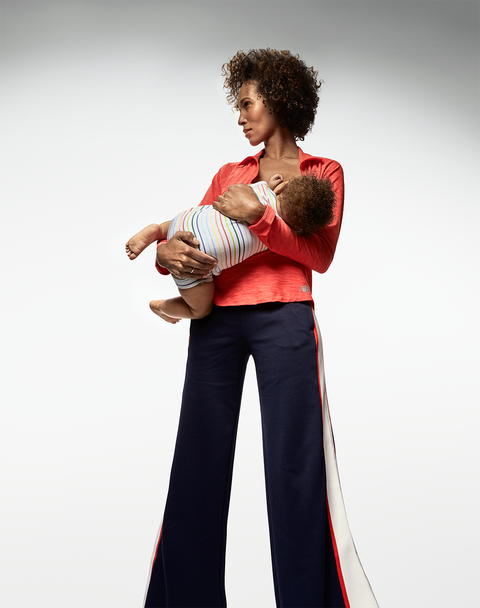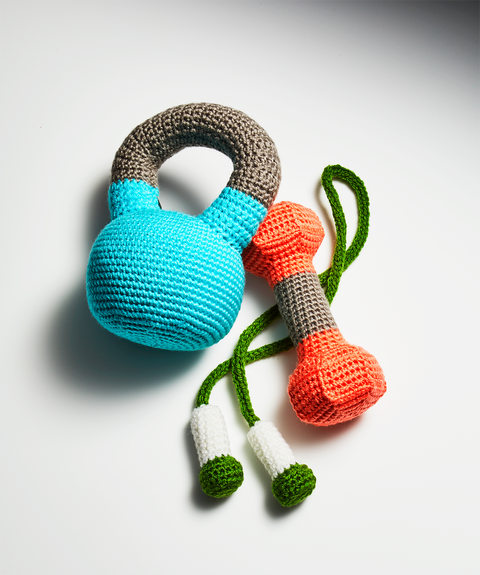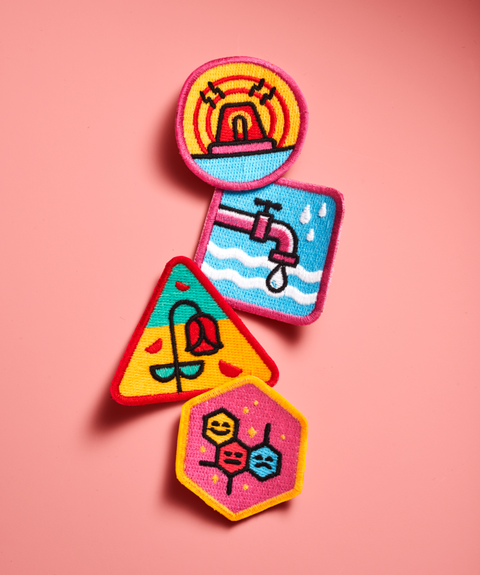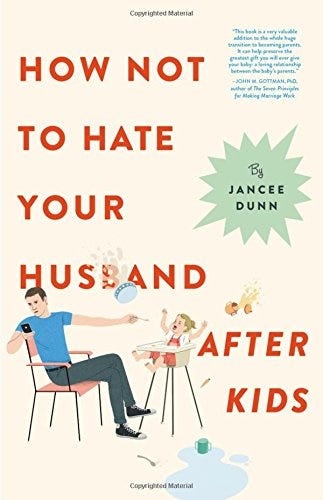The Ultimate Postpartum Guide: What Really Happens After You Give Birth

Nearly 90 percent of women will have a child. Yet for an event so common—and dramatically life-altering—it’s striking how rarely we discuss what happens to us. Forget diapers and pacifiers. We want to talk about how motherhood transforms our minds, our bodies, and our health. (And why talking about it just might save our lives.) Welcome to the WH unfiltered reality guide.
MOTHERHOOD IS MAGICAL. Really, that’s the only word that can describe the act of creating, delivering, and raising a child. But there’s another sleight of hand at play, one that’s rarely discussed: the mysterious power to make the woman who endured nine months of pregnancy, hours of labor, and birthing a baby the size of a small pumpkin (according to the fetus-size-as-produce chart) feel virtually invisible after birth.
Don’t get us wrong—few things in life are sweeter and more rewarding than a baby’s gummy smile. But while newborns are doted upon, moms are often relegated to the background, with limited help or resources as they navigate one of the most profound physical and psychological shifts a woman can experience. Indeed, nearly three-quarters of mothers say society doesn’t understand or support them, according to a recent survey.
One reason: There’s a myth that motherhood comes naturally and that we’re completely fulfilled just by taking care of our babies, says Elizabeth Fitelson, MD, an assistant professor of psychiatry at Columbia University Medical Center. So why would we need help or—gasp!—make ourselves a priority?
Let’s bust that misconception wide open. Yes, motherhood can be joyous. But it can also be full of angst, sadness, and confusion. Most often, it’s a shifting maelstrom of all those emotions and more. And, oh yeah, physical and mental changes that last a lifetime—not just the six weeks after delivery (the clinical definition of the postpartum period).
We say: Eff the unrealistic expectations that women should heal from giving birth, master breastfeeding, and return to work in less time than it takes to train for a half-marathon! We need a postpartum revolution—to say the unsayable and acknowledge the hard truths about modern-day motherhood. Celebs like Chrissy Teigen, Cardi B, and Serena Williams are already leading the charge by publicly sharing their postpartum struggles. Netflix’s raw sitcom The Letdown vividly busts new-mom stereotypes. And women are using hashtags like #TakeBackPostpartum and #MotherhoodUnfiltered to inspire and encourage others with stories of the less-than-picture-perfect side of momming.
It takes a village to raise a child. But moms are equally in need of a community of support. Enter ours. It’s about to get very real.
Dan Forbes
Why Didn’t Anyone Tell Us About This?
You knew delivering a human was going to be tough, but guess what: That was just the beginning. Some crazy sh*t happens to your body after delivery. Fortunately, we’ve got the remedies for your postpartum parts.
Dan Forbes
Feeding Frenzy
At first, nursing can—pun intended—suck. But conquer these challenges and you’ll reap health perks for yourself and your baby.
Dan Forbes
The Politics of Breastfeeding
The debate on “breast is best” versus formula feeding distracts from the real problem: Doctors heavily promote breastfeeding, but the government doesn’t fully support moms’ efforts. Breastfeeding in public wasn’t legal in all 50 states until this year. Inadequate paid leave forces many mothers to return to work before they can establish a milk supply (it can take up to six weeks), and 60 percent of working moms don’t have a safe, private place to pump. Is it any wonder two-thirds of moms don’t reach their BF goals? Here’s what you can do to take action.
A Matter of Life or Death
Babies have a flurry of checkups in the days and weeks after leaving the hospital. Though moms are also at risk during this period, most won’t see a doctor until their six-week checkup. An estimated 700 women die in the U.S. every year from pregnancy- and childbirth-related causes—that’s more than in any other country in the developed world. Another 65,000 nearly die. And women of color are particularly vulnerable, according to the Centers for Disease Control and Prevention.



More devastating, research says that half of these deaths may be preventable. Why: New mothers aren’t told of the risks and problematic signs, and postpartum nurses don’t receive enough education on symptoms that could indicate life-threatening complications,
one study found. What’s more, women living in rural “maternity care deserts” don’t have enough access to obstetric services, says a new March of Dimes report.
To address the unacceptably high maternal-mortality rate, the American College of Obstetricians and Gynecologists (ACOG) recently released guidelines suggesting that a mom’s first doc visit should come within three weeks of delivery, with follow-ups as needed. When women are seen sooner, doctors are more likely to spot cardiovascular problems, hypertension, and mental health issues that are big factors in these mortality rates, says ob-gyn Tamika Auguste, MD, a coauthor of the ACOG opinion.
If you’re expecting, schedule an appointment within a few weeks of your due date. And if worrying symptoms (swelling, headaches, heavy bleeding, breathing difficulties) crop up before this visit, call your doctor, stat.
Dan Forbes
Who Am I Now?
The seismic identity shift experienced by freshly minted moms can be disorienting, slightly terrifying, and bittersweet. We sat down to get real about this transition with reproductive psychiatrists Alexandra Sacks, MD, and Catherine Birndorf, MD, authors of the forthcoming What No One Tells You: A Guide to Your Emotions From Pregnancy to Motherhood.
Why do women often feel a loss of identity after having a baby?
Sacks: It’s a wild change that’s actually analogous to puberty. Just like how a child evolves into a teenager and an adult, there’s a period of body morphing and hormone shifts that a woman goes through when she becomes a mother. Plus there’s an identity transition: You go from living a life where you are at the center to waking up and realizing you are responsible for, and in love with, a completely dependent human who now runs the show.
What do you wish more women knew about this metamorphosis?
Birndorf: That almost every new mother is ambivalent in some way about becoming a mom.
Sacks: Exactly. Women come to me and say, “Today
I felt like I wanted my old life back,” or, “Did I make a mistake having a baby?” They are afraid to admit it and think something is wrong with them. That’s why talking about the highs and lows is so important. Knowing you’re not alone can be incredibly powerful.
What can women do to find themselves again?
Sacks: Write down everything that was most pleasurable to you before you became a mom—what made you feel balanced and well. Then put the list on
your refrigerator so you can check in and see how much of it you have cut out in the craziness of early parenting. We’re often too busy in the transition to motherhood to put ourselves first, and this list can be an important reminder.
Dan Forbes
The Politics Of…Paid Leave
The U.S. is the only developed country in the world without mandated paid family leave, and policies created by individual states cover just 15 percent of workers. As a result, one in four women return to work just two weeks after giving birth. What’s most frustrating: Research shows paid leave policies would benefit everyone. They increase productivity, reduce reliance on government subsidies, and lower infant mortality rates.
Take Action: Urge your elected officials to vote for the FAMILY Act, which would create a national program providing all workers up to 12 weeks of partial income to deal with pregnancy, caregiving, or health issues.
Trying NOT To Conceive
Post-baby, changes to your repro goals may lead you to rethink your birth control. Let us help you guide your choices, whatever your situation.
Best for… Women who are still breastfeeding
Progesterone-only contraception such as the mini-Pill, intrauterine devices (IUDs), the shot, or an implant. Combined hormonal methods—those containing estrogen—may hurt mom’s milk supply.
Best for…Women who want to get pregnant again soon
Condoms, cervical caps, and diaphragms. They’re commitment-free, so you can toss them whenever you’re ready to try again.
Best for…Women who are on the fence about having more kids
LARCs (long-acting reversible methods), including an IUD, an implant, or a shot. They’re 99 percent effective, and once they’re in place you don’t have to think about birth control again until you’re ready to try for another baby.
Best for… Women who are over it
Vasectomy. And after years (maybe decades) of handling the birth control in your relationships, you’ve earned a break. It can take three months to be effective, so if you don’t want an oops baby, use condoms until you get the green light from the doc.
I’m exhausted and hormonal. My giant breastfeeding boobs hurt 24/7. I pee a little every time I do a jumping jack.
Beyond the Blues
As many as 15 percent of new moms develop a post-partum mood and anxiety disorder (PMAD)—yet only half of sufferers are identified. The key to getting
help: spotting the red flags that signal the shift from
normal woes to a serious problem.
Bonding Difficulties
Baby Blues: Your connection is a slow build, not love at first sight.
PMAD: You’re indifferent to or ambivalent about your child, or you actively dislike them.
Mood Swings
Baby Blues: You ugly-cry one moment and belly-laugh the next.
PMAD: You have severe emotional shifts that last longer than three weeks.
Anxiety
Baby Blues: You feel unsettled and on edge.
PMAD: Obsessive fears make it hard to function. E.g., You stay up all night to compulsively check on the baby.
Scary Thoughts
Baby Blues: You worry about accidents (like dropping the baby).
PMAD: You persistently think about harming your child, even if you never would act on it.
GET HELP: Joining a moms group to connect with others can take the sting out of the baby blues. If you have even one symptom of PMAD, talk to your doctor or call the Postpartum Support International helpline (800-944-4773).
Dan Forbes
For the Long Haul
Six months after giving birth, writer Sara Gaynes Levy is still navigating fitness as a new mom.
At my postpartum checkup, I asked my OB if there was anything I needed to be careful about as I got back into working out. Her vague response: “Don’t do anything that doesn’t feel comfortable.”
Um, what? My entire life is uncomfortable! I’m exhausted and hormonal. My giant breastfeeding boobs hurt 24/7. I pee a little every time I do a jumping jack. (People: A warning would have been nice!) And I’m still recovering from the last year of my life: the first-trimester nausea that left me so weak I could barely stand up to take a shower; the third-trimester belly that let me drop down only an inch during modified pushups; the baby that compressed my lungs for a quarter of a year.
There’s a mental shift too. I’ve spent years trying to get comfortable with discomfort. Running long distances, holding deep yoga poses, lifting heavy weights—none of that necessarily feels good in the moment, but I’m stronger for it. In fact, that’s always been the point of exercise for me: It helps me feel powerful, awake, on top of my game. But now that my body is in something of a state of disrepair, I’m no longer always able to tell when discomfort is building it up or breaking it down.
It only gets more confusing when I have to choose between taking care of my body by sleeping and taking care of my body by exercising. I want to be the best version of myself for my daughter, but I don’t always know which one to pick. It’s a new kind of challenge, one without a clear finish line.
Most days I choose the physical discomfort (although, I promise, if I have a day where I feel like it’s punishing me, I back down) because I want my daughter to see that every drop of sweat on my face is proof of a victory. I want her to share in that strength and see exercise as something to be proud of. I’m pushing through the aches—for both of us.
Let’s Talk About Sex
And how almost a quarter of women still find it painful a full 18 months after childbirth. Overcome these issues and the only thing standing between you and a stellar romp will be the kid who wakes up just as you get your groove on.
Dan Forbes
Scars: If you tore or had an episiotomy, still-healing tissue can be sore. Add bedroom activities that don’t involve penetration. C-section incision still itchy and sensitive? Avoid positions that put weight on your stomach.
Leaks: Chemicals released during sex can trigger letdown, even if you’ve stopped breastfeeding. Meaning: Your boobs may spray. And with your weakened pelvic floor, pee might also trickle out. Keep a towel (and a sense of humor) close by.
Hormones: Still breastfeeding? Low estrogen levels can make the vagina less elastic and cause it to dry out. Plus, nursing curbs testosterone (the ’mone that amps up desire). Lean on lube and longer foreplay.
Libido: Dissatisfaction with your body and sheer exhaustion can make you feel “meh” about getting down. Spend time with your guy without sex being the sole goal. Tell him: Netflix, sans chill.
The Politics of Childcare
Talk about sticker shock: The average cost of childcare in the U.S. is $8,700 a year. That price tag, combined with a lack of family-friendly work policies (e.g., flex time), drive many women out of their jobs, which can create financial hardship. “Having a baby is one of the leading causes of poverty,” says Kristin Rowe-Finkbeiner, cofounder and CEO of MomsRising.com and author of Keep Marching:How Every Woman Can Take Action and Make Change in Our World.
Take Action: Urge your elected officials to vote for the Child Care for Working Families Act, which would limit childcare costs to 7 percent of low- and middle-class parents’ income. If you’re in need of financial help, contact advocacy group Childcare Aware (childcareaware.org). It can connect you with assistance resources in your state.
Dan Forbes
Rethinking Mom Brain
Forgetting appointments or even (occasionally) your own name—the mental struggle is legit. As in scientifically proven: Brain scans show moms have less gray matter. But that could be a good thing. “It may be our brain’s version of nesting—a streamlining and restructuring that helps us adapt to the extra skills and attention needed to nurture another human being,” says Kelly Lambert, PhD, a professor of behavioral neuroscience at the University of Richmond. In which case: Embrace these new superpowers.
Mad Multitasking Skills: Moms have increased activity in their prefrontal cortex, an area of the brain associated with
decision-making. That quick thinking comes in handy when juggling the demands of motherhood.
Enhanced Empathy: You’ll feel for your kids, even during the most epic tantrum, because the part of your brain linked with understanding others’ emotions grows.
A Shield Against Stress: Maternal brain changes may make you less likely to lose your sh*t in tense situations, preliminary research suggests. Call on this prowess when your preschooler flips out over
the seam in her socks.
A Razor-Sharp Memory: Changes to the hippocampus may boost your powers of recall. The catch: It pertains only to info about your kids. You’ll remember exactly where your toddler left his monster truck, but you still might scramble for a coworker’s name. Womp.
Dan Forbes
Couples Therapy
Wee ones can create rifts, EVEN In strong relationships. To the rescue: These realistic solutions to common sticking points.
ALL YOU DO IS BICKER.
Rx: Say thanks. Why: Couples who express gratitude have
stronger marriages. It helps you focus on your guy’s good deeds—which can get lost when you’re raging because he didn’t remember to empty the Diaper Genie, says Jancee Dunn, author of How Not to Hate Your Husband After Kids.
YOU’RE EXPECTED TO TAKE CARE OF EVERYTHING.
Rx: The mental load is heavy. One way to lighten it: Make it worth his while. Dunn told her husband that if he took on some cognitive chores, they’d both be happier. When he pitched in more, she felt less resentful and he felt more connected to their family.
YOUR S.O. IS JEALOUS OF THE ATTENTION YOU GIVE THE KIDS.
Rx: Play hooky from work and grab brunch. “Showing your partner that spending time
together is a priority can ease the jealousy,” says Carol Ummel Lindquist, PhD, author of Happily Married With Kids: It’s Not a Fairy Tale.
EVERY CONVERSATION IS ABOUT THE KIDS.
Rx: Block off 10 minutes every night to chat. The only topic that’s off-limits: your offspring. “We struggled for things to talk about at first—it was alarming—but it got easier and was key to helping us reconnect as people instead of as parents,” says Dunn.
YOU’RE MISSING THE SPARK
Rx: Try a new restaurant, sign up for an art class, or go to a concert. Partners who regularly share new experiences report bigger boosts in marital happiness than those who stick to the same old, same old. Even doing a novel activity with the kids counts, adds Lindquist.
Beyond Stretch Marks
Pregnancy and childbirth can transform your body in ways that can linger for years, even decades. Many women suffer through the changes silently, since they’re often brushed off as “the price we pay for having kids.” But—surprise! There’s a way to address every single one.
Rediscover your abs: The expanding uterus can stretch and separate your abdominal muscles, leaving you with a protruding pooch. A pelvic floor therapist (find one at pelvicrehab.com) can confirm you have this condition—diastasis recti—and suggest exercises to close the gap, though some women need surgery, says Alicia Willoughby, a pelvic health PT in San Francisco.



Jump on a trampoline again: Leak a little when you cough, laugh, or hop? Blame weakened pelvic floor muscles. Cutting back on fluid and caffeine before bouncy activities helps most women, says May Wakamatsu, MD, a urogynecologist at Massachusetts General Hospital. If that fails, try a pelvic floor PT or a pessary (a silicone device that’s inserted into the vagina to block flow).
Wake without aching: A weak core and carrying extra weight (no shame: It can take a while to drop those last few pounds) can contribute to a creaky back, hips, and pelvis. Strengthen your lower abs with pelvic tilts and do child’s pose to stretch and soothe muscles at the base of your spine. At night, sleep with a pillow between your knees to curb hip strain.
Get everything back in place: When the ligaments and muscles supporting your uterus get lax during pregnancy, down-there organs can sink into (or even bulge out of) your vagina. Your gyno’s likely Rx: pelvic floor therapy. That may include visualizations (New Orleans PT Sara Reardon, DPT, says to imagine you’re sucking up a smoothie with your vag to reconnect with the muscles).
The Politics Of…The Pay Gap
How messed up is this: Women earn 4 percent less for every child they have, while men get a 6 percent pay bump. Women who have children before 25 or after 35 may eventually
close the gap with their husbands, but those who have kids between 25 and 35—hello, that’s most of us—will likely never catch up relative to their partners.
Take Action: Ask your reps to vote for the Paycheck Fairness Act, which would require employers to prove that pay differences are a result of legitimate job-related issues (and not sexism). Rejoining the game? Try a paid “returnship”—a program for professionals who need to regain or update their skills after taking time off to care for kids. Visit PathForward.org for details. Create a profile at ApresGroup.com or TheMomProject.com, job sites that connect women to flexible career opportunities (such as maternity-leave fill-ins).
Stronger. Faster. Better.
Exercising after kids? Um, you’re probably feeling lucky if you can find time just to go to the bathroom alone. But like the women below, you might surprise yourself with what you’re capable of.
I used to just watch my kids surf. Then one day I joined them—mostly to prove to myself that I could keep up—and got hooked! There’s nothing like riding the waves with them. —Ahna, 34
I went to a group training class to get back in shape and set a good example for my kids.
I met some moms who pushed themselves—and me. This fall I ran my first marathon. —Jen, 43
Having kids is rewarding but not always in a tangible way. I wanted to set and complete a measurable goal, so I hiked the 22-mile trail at Mount Whitney. The mindset I relied on during childbirth helped me make it to the top. —Courtney, 40
This article originally appeared in the November 2018 issue of Women’s Health.
Source: Read Full Article
